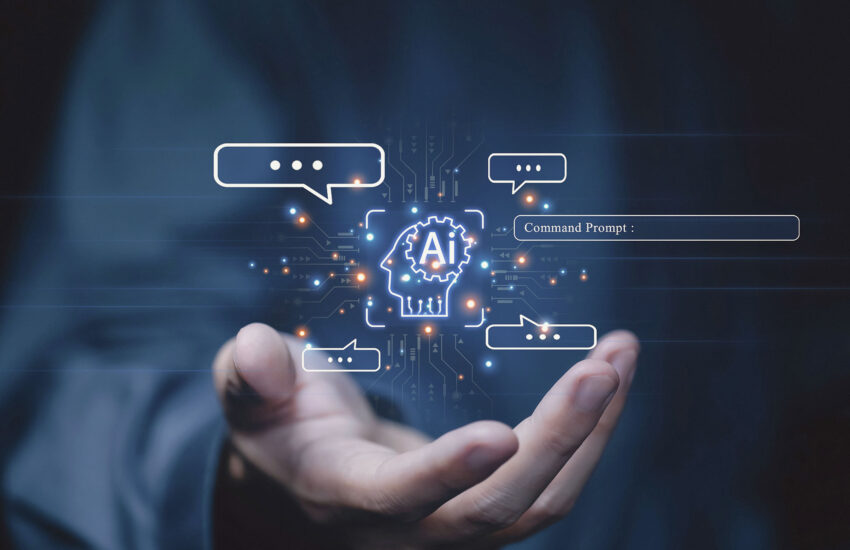Artificial intelligence (AI) is no longer just a futuristic concept; it is already revolutionizing industries, improving efficiencies, and enhancing our daily lives. From healthcare to finance, AI is shaping how businesses operate, how we interact with technology, and even how we make decisions. This article explores the impact of AI across various sectors and discusses how it is transforming the future.
1. What is AI?
Artificial intelligence refers to the ability of machines to simulate human intelligence and perform tasks that typically require human cognitive functions such as learning, problem-solving, decision-making, and language processing. AI systems rely on machine learning, where algorithms are trained on data to recognize patterns and make decisions or predictions without explicit programming.
Key Types of AI:
- Narrow AI: Specialized in performing a single task, such as facial recognition or language translation.
- General AI: A theoretical form of AI that would be capable of performing any intellectual task that a human can do.
- Superintelligent AI: A highly advanced form of AI that surpasses human intelligence, though it remains a subject of debate and research.
2. AI’s Role Across Different Industries
AI’s influence is widespread across various sectors, offering improved efficiencies, innovation, and new opportunities.
AI in Healthcare
In healthcare, AI is transforming patient care by enhancing diagnostic accuracy, predicting disease outbreaks, and providing personalized treatment plans. AI-driven technologies are also helping doctors analyze medical images, identify early-stage diseases, and improve patient outcomes.
Benefits of AI in Healthcare:
- Precision Medicine: AI analyzes genetic information to provide customized treatment plans.
- Predictive Analytics: Identifying potential health issues before they become critical.
- Medical Robotics: Assisting in surgeries with high precision and minimal invasiveness.
AI in Finance
AI is reshaping the financial sector by enabling better decision-making, automating processes, and enhancing security. From algorithmic trading to fraud detection, AI helps streamline operations and reduce human error.
AI in Financial Applications:
- Robo-Advisors: AI-driven investment advice for individuals.
- Fraud Detection: Identifying suspicious activities in real-time.
- Credit Scoring: Using AI to predict a borrower’s creditworthiness more accurately.
AI in Education
AI is revolutionizing education by personalizing learning experiences and making educational resources more accessible. AI-powered tools assist in creating tailored lesson plans and provide real-time feedback for students.
Benefits of AI in Education:
- Adaptive Learning Platforms: Tailoring lessons to each student’s pace and learning style.
- AI Tutors: Providing additional support outside of classroom hours.
- Automated Grading: Reducing teachers’ administrative workload, allowing for more focus on teaching.
AI in Manufacturing
In manufacturing, AI is being used to optimize production lines, predict maintenance needs, and enhance product quality. AI-powered robots and automation systems increase efficiency while minimizing costs and downtime.
AI Applications in Manufacturing:
- Predictive Maintenance: Identifying equipment issues before they lead to costly failures.
- Supply Chain Optimization: Using AI to streamline logistics and reduce waste.
- Quality Control: AI-based image recognition systems monitor product quality in real-time.
AI in Marketing
AI is transforming the marketing landscape by enabling data-driven decision-making and automating tasks such as customer segmentation and content creation. AI helps businesses create personalized experiences for consumers, improving engagement and conversions.
AI in Marketing Strategies:
- Personalized Content: Creating tailored advertisements based on user preferences.
- Chatbots: Providing real-time customer service 24/7.
- Predictive Analytics: Forecasting consumer behavior to target the right audience with the right message.
3. The Ethical Implications of AI
While AI offers immense benefits, it also raises important ethical questions. These include concerns about data privacy, the bias in AI algorithms, and the potential for job displacement due to automation.
Ethical Considerations in AI:
- Bias in AI: AI systems can unintentionally reinforce societal biases if trained on biased data.
- Job Displacement: Automation could lead to job losses in certain sectors, leading to the need for re-skilling the workforce.
- Data Privacy: With AI collecting large amounts of personal data, there is a risk of misuse or unauthorized access.
As AI continues to evolve, it will be crucial to ensure ethical frameworks are in place to address these concerns.
4. AI and Society: A Transformational Force
The impact of AI goes beyond just industries—it is also changing how we interact with technology and each other. From smart assistants like Siri and Alexa to self-driving cars, AI is becoming an integral part of our everyday lives.
Everyday AI Applications:
- Voice Assistants: AI-powered devices that help with tasks like setting reminders or playing music.
- Smart Homes: AI technology automates home systems such as lighting, heating, and security.
- Autonomous Vehicles: Self-driving cars use AI to navigate and make real-time decisions on the road.
These applications demonstrate just how integrated AI is becoming in our lives, improving convenience and productivity.
5. The Future of AI: Opportunities and Challenges
The future of AI holds immense potential, but there are challenges to overcome. As AI continues to advance, we can expect even more innovative applications in fields like healthcare, education, and climate change. However, concerns about security, ethics, and regulation must be addressed to ensure that AI is developed responsibly.
Future Trends in AI:
- AI for Climate Change: AI-powered models can predict climate patterns and suggest solutions to mitigate environmental damage.
- Human-AI Collaboration: AI will assist humans in complex tasks, improving decision-making and productivity across industries.
- Regulation of AI: Governments and organizations will need to establish guidelines to ensure AI is used ethically and safely.
Conclusion
Artificial intelligence is undoubtedly one of the most transformative technologies of the modern era. From improving healthcare outcomes to revolutionizing finance and education, AI is reshaping industries and society. As we continue to harness the power of AI, it’s essential to address the ethical challenges and ensure that this technology benefits everyone equitably. By understanding the opportunities and challenges, we can work toward a future where AI plays a positive role in enhancing human life and progress.

